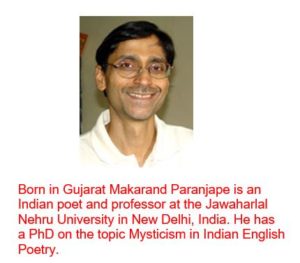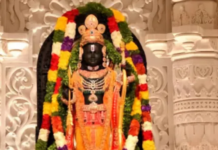|
Out of the blue, an acquaintance suddenly asked, “Tell me, is there a heaven and hell?”
Taken aback, I counter-questioned, “Do you mean, are they real places, like Delhi or Bengaluru?”
“Yes, absolutely,” my friend responded, “Don’t you want to go to heaven? I have good news: believe in the one God and your place in heaven is secure.”
Born again
“What about those who can’t?”
She replied, in all seriousness, “No one can help them; they will burn in hell for eternity.”
I realised, not without a twinge of sadness, that my friend had been “born again.” She was great just the way she was earlier but obviously she didn’t think so. The conversation may as well have ended there. Any reasonable argument would now fall on deaf ears.
“Tell me, though,” I persisted, “How do you know this?”
“It’s all there in the holy book.”
“Do you believe that the earth is round and that it revolves around the sun? That there are many other stars, galaxies and planetary systems? And the speed of light is about 3,00,000 km per second?”
“Why are you telling me this? I was a science student!”
“Because it’s not in your book. Similarly, there’s no ‘scientific’ evidence of hell or heaven.”
“But science can’t know everything.”

“Yet you rely on it when you board a jet plane, expect it to take off, travel faster than sound, then land safely, none of which is in your holy book.”
“Yes, but that has nothing to do with heaven and hell. They exist not as the things we touch and see in our world.”
“Precisely… They must belong to some other plane of existence — mental, psychological, spiritual, poetic, artistic, moral, and so on.”
“You’re not taking this seriously. I too used to worship devils and evil spirits as you do. You must stop and accept the one true God as your saviour.”
“But no two scriptures, even in your own religion, agree. Insisting that yours is right and all the rest are wrong is to violate the human rights of others.”
“What do you mean?”
“By tying to impose your beliefs, by calling people unbelievers, telling them they will go to hell, are you not violating their human rights? Shouldn’t all people be treated with dignity and respect regardless of their religion, ethnicity, race, nationality, or sexual orientation?”
“If you don’t believe in God, his only begotten Son, and the Day of Judgment, you are going to hell, I’m warning you…”
“Your ‘good news’ sounds like really bad news… But now that you’ve brought in a Son, obviously your one God is already two; if one can become two or three, there’s hope also for the many….”
At which point she cut the call.
Just then an irreverent thought crossed my mind: didn’t her God somewhat resemble the President-elect of the United States — sexist, racist, and bigoted? Of course, I didn’t tell her; I didn’t want to hurt her feelings.
Conversion
From my student days, however, such preaching and proselytising have repeatedly hurt my feelings. Invariably and irritatingly, Hindus and followers of non-Abrahamic faiths are subjected to a range of abuse from subtle disapproval, open contempt, to outright condemnation.
The argument is that the Indian Constitution guarantees believers the practice of their religion, which includes the right to convert others. But what about the right of people not to be preached to and not to be converted?
Shouldn’t we have a legal version of the mobile DND option? Such “Do Not Disturb” injunctions against theological spam would also be welcome.
This would be in keeping with the Confucian version of the Golden Rule: do not do unto others what you would not want them to do unto you. If you don’t want to be preached to or convert, why try to do that to others?
Many Islamic countries, for instance, ban not just conversion out of Islam, but the preaching and public practice of other religions also. Even Singapore has laws against proselytisation. In contrast, a visiting Pope declared that India was ready to reap a great harvest of faith.
No wonder, hundreds of organisations spend billions of dollars not only to spread their religious ideologies but also to vilify, malign, and demonise other faiths.
Intolerance
The equality of religions, it would appear, is a doctrine that only Hindus and some non-Abrahamic people accept.
Judaism believes that theirs is the only true God and that Jews are His chosen people; but Jews do not convert others. Christianity and Islam, it is well-established, have a blood-soaked record of religious imperialism, aggressive proselytising, and iconoclastic violence against non-believers.
Shouldn’t there be a UN resolution against organisations and ideologies which continue to spread intolerance, intimidating non-believers with threats of eternal damnation, and bribing them with salvation if they convert?
To shift the idiom from the secular to the religious, if the idea of jealous, intolerant, insecure, and unforgiving God is so counter-intuitive, shouldn’t we question whom such believers really worship and serve? Or, being non-Abrahamic, non-dualist ourselves, shouldn’t we respectfully point out, following the Bhagavad Gita, that for all sincere acts of worship or sacrifice, there is One Recipient and Lord?
Those who create a false opposition between the Supreme and His constituent divinities are themselves ignorant. Their reward, both in this world and the next, is therefore likely to be small.
Unfortunately, this will not convince them as effectively as legislation or curtailing funding will.
(This article first appeared in Mail Today – http://epaper.mailtoday.in/c/15333127 and is being reproduced with the permission of the author)
Author: Makarand R Paranjpe

|












